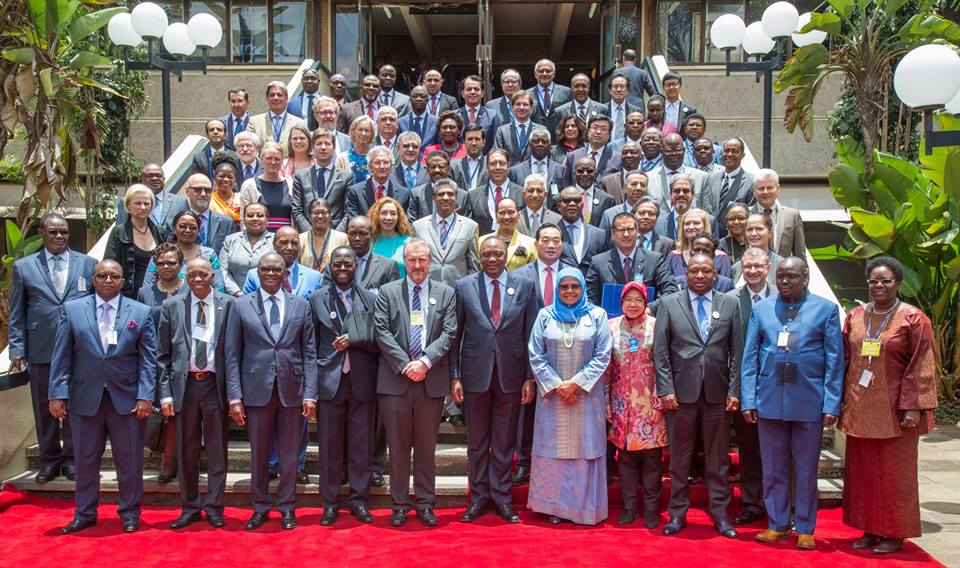Solid waste choking cities globally with 2b tones generated daily-UN


By Fauxile Kibet
World leaders have been urged to find effective ways of dealing with solid waste, which continue to become a major issue as urbanization expands.
Speaking while leading a function to mark the World Habitat Day at a global gathering at the United Nations office in Nairobi Kenya, President Uhuru Kenyatta noted that across the world, municipal solid waste was posing a major threat especially to growing cities.
“Solid waste management poses one of the greatest challenges of our time in a rapidly urbanizing world. We must take urgent action,” the Kenyan leader said.
Mr. Kenyatta observed that the goal of sustainable management of solid waste is attainable because it dovetails with other global goals.
“I call upon the UN-Habitat to provide expertise and advice, not only to Kenya, but to other Member States so as to ensure the principles of housing affordability and adequacy are upheld in projects they implement,” he said.
The Executive Director of the UN-Habitat, Maimuna Shariff, said 2 billion tonnes of waste is generated on a daily basis globally meaning that each human being is responsible for one kilo of waste.
“Each of us play a role in generating waste meaning that each of us can play a role in reducing it,” she said.
Ms Shariff added that the World Habitat Day provided an opportunity for the International community to focus on key issues surrounding sustainable urbanization, human settlements and device ways to improve urban living conditions.
“The amount of waste produced by individuals, communities, businesses, institutions, markets and factories continues to grow tremendously,” explained Ms. Sharif.
Adding, “Some of it is recycled but a lot is simply discarded, causing health problems for people, their animals, and polluting our environment”.
2 billion tonnes
The United Nations estimates that the world produces two billion tonnes of waste annually and that 99 per cent of the items we purchase are thrown away within six months.
“We can all make small adjustments to our consumption styles, by using alternatives to disposable plastic items, such as bottles, cups, plates and cutlery, making a conscious effort to recycle correctly and fixing broken items instead of simply throwing them away,” Ms. Sharif observed.
Some of the initiatives highlighted by the UN-Habitat include community-based waste management collection and recycling, as well as a one-off project titled “Trash to Art” calling on local artists to make a statement on sustainability by creating artwork using thrown-away materials.
“I believe that effective waste management starts with us as individuals, through collective action, we can achieve a world that is cleaner, greener, safer, healthier and happier, for us to live, work and play,” said Ms. Sharif.